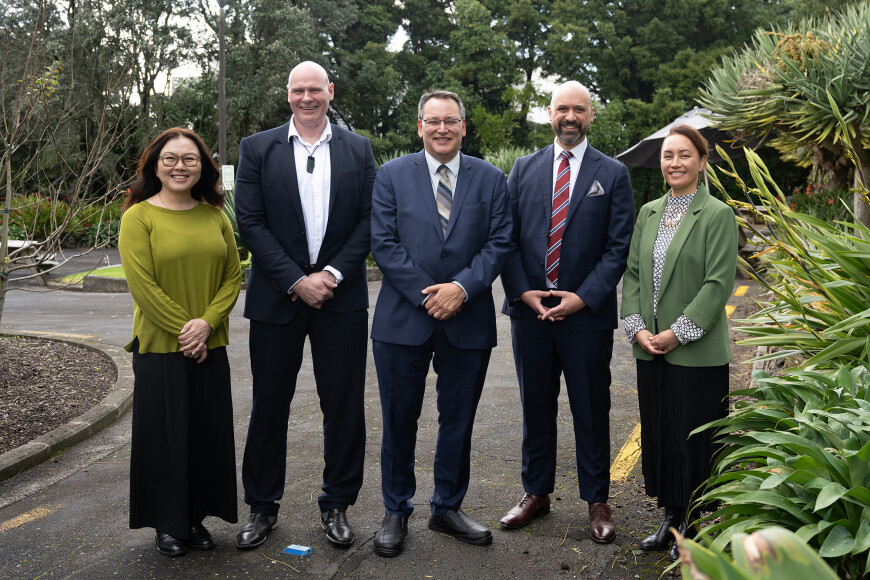Hon Dr Shane Reti, Minister of Science, Innovation and Technology, announced the Biodiscovery Platform at the Bioeconomy Science Institute’s Mt Albert Research Centre in Auckland on Saturday, 4 October 2025.

Left to right: Melissa Lee (List MP, Mt Albert), Mark Piper (Bioeconomy Science Institute CEO), Hon Dr Shane Reti (Minister for Science Innovation and Technology), Willy-John Martin (MBIE, Director Māori Science, Innovation and Technology), Stacey Whitiora (Bioeconomy Science Institute, Director Māori Strategy, Partnerships & Enterprise, Plant & Food Research Group).
The Government is investing $42.8 million in the platform over seven years. The Bioeconomy Science Institute will bring together researchers, industry and Māori enterprise to set priorities for the platform, explore research partnerships and provide market analysis to guide high-impact investments in bio-based pharmaceuticals, cosmetics, functional foods, and advanced materials.
“This is a really exciting moment for the Bioeconomy Science Institute. There’s clear opportunities to partner with Māori to create impact and drive growth for New Zealand through the discovery and development of new bio-based products, which this platform will enable,” says Bioeconomy Science Institute Chief Executive Mark Piper.
“Mānuka honey, for example, is a globally-recognised example of a premium export with proven bioactive benefits, and we believe there are other native species with unique properties that have big potential.”
The institute's expertise in bioactives has already driven discoveries. In a recent project led by a consortium of three iwi in collaboration with industry, our researchers investigated the small indigenous liverwort plant known as wairuakohu (Radula marginata), revealing that the plant produces compounds similar to those found in cannabis, showing real potential for future applications.
“We’ve also partnered with Māori iwi, hapū and whānau entities to explore bioactive compounds in other taonga plant species including mānuka, kānuka, and mamaku, and the Biodiscovery Platform will support the expansion of this work,” says Piper.
“A critical part of this journey is how we work with Māori. At the Bioeconomy Science Institute we are actively developing principles for engaging with taonga species and mātauranga Māori. Our approach is to foster economic opportunities through respectful and collaborative partnerships with tangata whenua, commercial partners, and research communities across New Zealand.”
About the Bioeconomy Science Institute
The Bioeconomy Science Institute brings AgResearch, Manaaki Whenua - Landcare Research, Plant & Food Research and Scion together into a single organisation, conducting research to advance innovation in agriculture, horticulture, aquaculture, forestry, biotechnology and manufacturing, protect and enhance ecosystems from biosecurity threats and climate risks and develop new bio-based technologies and products. For more information visit www.bioeconomyscience.co.nz
